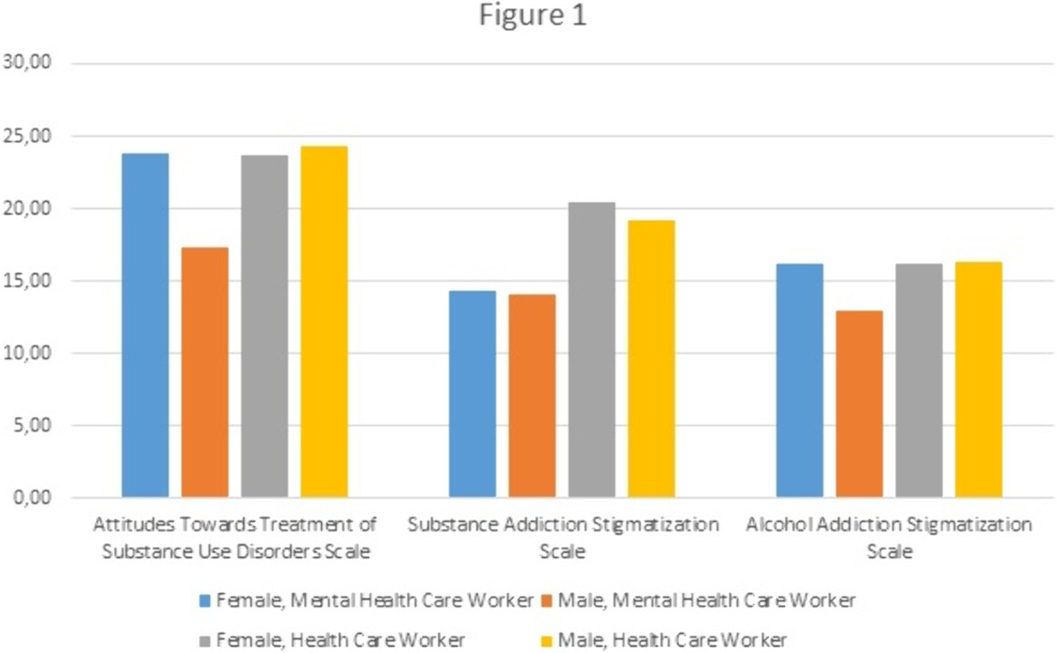No CrossRef data available.
Published online by Cambridge University Press: 01 September 2022
Individuals with substance use disorders are considered unpredictable and violent by the public. Besides, health care workers (HCW) may have negative attitudes towards them, despite their knowledge about addiction; which is related to lower quality of care. In Turkey, addiction service users are predominantly male, over ninety percent; while women make up a large percentage of psychiatrists.
The present study aims to evaluate if the HCWs level of stigma towards individuals with substance use disorder changes due to gender and mental health sector experience of the HCWs.
Within an online survey, participant HCWs answered Attitudes Towards Treatment of Substance Use Disorders Scale, Substance Addiction Stigmatization Scale, Alcohol Addiction Stigmatization Scale; in addition to sociodemographic questions.
Three hundred ninety-eight HCWs were included in the analyses. 22.7% of them (n=91) were recruited in mental health sector. Mental health care workers had lower levels of stigma towards individuals with alcohol use disorders (14.78 vs 16.21, p=0.048) and substance use disorders (14.21 vs 20.09, p<0.001) and, lower levels of stigma towards addiction treatments (20.89 vs 23.93, p=0.007). Among mental health care workers, women scored higher numbers of stigmatization towards alcohol use disorder and addiction treatments (16.26 vs 12.98, p=0.003; 23.84 vs 17.29, p<0.001). On the other hand, women and men in other HCWs groups did not differ from each other in terms of stigmatization measurements (See Figure 1)

The gender of mental health care workers may be related to stigmatization towards addictive disorders. Future research should evaluate underlying factors.
No significant relationships.
Comments
No Comments have been published for this article.